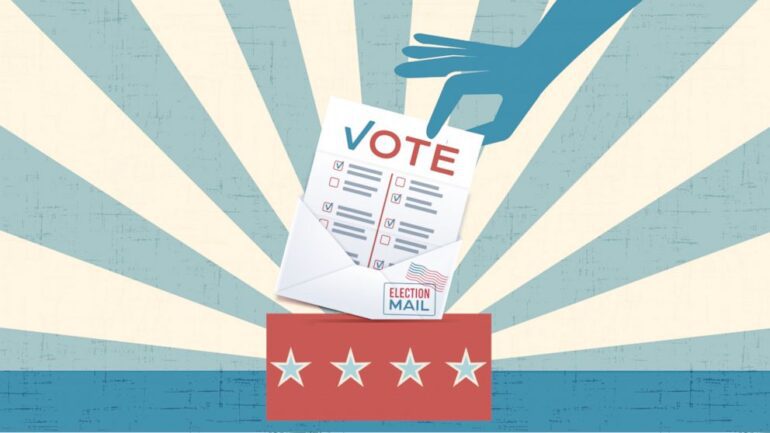TL;DR:
- State election officials are deeply concerned about the dissemination of misleading AI-generated content.
- Misinformation and the use of generative AI tools pose significant risks to the integrity of elections.
- Concerns include the loss of experienced leaders, staffing issues, and the potential misuse of AI by foreign adversaries.
- Officials emphasize the need for regulations, public awareness, and disclosure requirements for AI-generated content.
- Some officials are undeterred by limitations on federal agencies and are determined to combat false information.
- Alternative approaches to combating misinformation without relying on social media companies are being explored.
- Staffing challenges and the need to retain experienced election workers are significant concerns.
- Partisan divisions exist over alternative data-sharing systems and efforts to improve voter list accuracy.
- The conference promotes bipartisan collaboration and the exchange of best practices to enhance election integrity.
Main AI News:
State election officials across the United States are facing a pressing issue as they gear up for the 2024 election: the spread of misleading AI-generated content. In interviews conducted during the National Association of Secretaries of State’s annual summer conference in Washington, several officials expressed their deep concern over the dissemination of false information and the emergence of generative artificial intelligence tools that contribute to the creation of deceptive content.
Amid the preparations for the upcoming election, the officials highlighted a range of significant worries. One key concern is the shortage of experienced leaders overseeing elections at the local level, leading to potential vulnerabilities in the system. Another alarming factor is the use of AI technology by foreign adversaries to manipulate and influence U.S. elections. State election officials from Michigan and Colorado particularly emphasized their unease with the rise of AI and its potential implications. They pointed to the rise of deepfakes, altered videos that utilize facial mapping and AI algorithms to make it appear as if real individuals are saying things they never actually said.
To tackle these challenges head-on, Colorado Secretary of State Jena Griswold established a working group within her office to assess potential risks and develop strategies. Similarly, Michigan Secretary of State Jocelyn Benson stressed the need for state and federal regulations that require disclosures of AI-generated content. Additionally, Benson emphasized the importance of enhancing public awareness surrounding the presence of AI-generated fake content. By educating citizens about how to discern and verify information, the dissemination of misleading content can be mitigated.
While recent court orders have limited federal agencies’ authority to engage with social media companies regarding false or deceptive content, some state election officials remain resolute in their commitment to combating misinformation. Arizona Secretary of State Adrian Fontes, undeterred by the injunction, affirmed that he would continue to communicate with anyone necessary to address false information. Fontes firmly believes that if deliberate misinformation undermines voters’ rights, immediate action must be taken to protect the integrity of the electoral process.
Ohio Secretary of State Frank LaRose and his counterparts suggested alternative approaches to combatting misinformation without relying on social media companies. LaRose described one instance in which his staff added a “false” label to a misleading social media post and promptly shared it with local news outlets to ensure accurate information dissemination. LaRose stressed that countering false information requires the dissemination of truthful and accurate information on a significant scale.
Amidst the concerns surrounding misinformation, West Virginia Secretary of State Mac Warner applauded a federal court ruling and expressed greater apprehension about the potential spread of false information by the federal government itself. Warner voiced his support for House Republicans’ efforts to investigate federal agencies’ activities leading up to the 2020 presidential election. He firmly believes that Americans should have the autonomy to access and believe what they choose, without undue interference from the government.
Addressing other concerns raised during the conference, officials from Pennsylvania and Kentucky highlighted staffing as a significant issue. In Pennsylvania, the turnover of experienced election workers due to retirements and increased stress has resulted in the loss of institutional memory and a higher likelihood of errors. Pennsylvania’s Chief Election Official, Al Schmidt, stressed the importance of retaining experienced election workers and acknowledged the inherent risks associated with a less experienced workforce operating in an environment where mistakes are perceived as deliberate or malicious.
While the conference aimed to foster bipartisan collaboration and share best practices, some Republicans’ decision to leave a bipartisan effort aimed at improving voter list accuracy and fraud identification triggered consternation among their Democratic counterparts. These decisions coincided with conspiracy theories surrounding the Electronic Registration Information Center (ERIC), which led to Republicans citing other reasons for their exit. Republicans have been working on an alternative data-sharing system among states.
Democratic officials expressed a lack of interest in any alternative to the ERIC system and hoped for the inclusion of large-population states such as California and New York, which are currently not part of ERIC. Kentucky Secretary of State Michael Adams, a Republican, acknowledged the court order requiring his state’s participation in ERIC but also expressed the need to establish reliable information-sharing channels with the 30-plus states outside ERIC.
Despite potential ideological differences, the conference attendees largely set aside partisan divisions to focus on sharing best practices and collaborating on improving the integrity of elections. The willingness to learn from one another’s successes is a driving force behind the continuous improvement of election processes across states.
Conclusion:
The prevalence of misleading AI-generated content is a pressing issue for state election officials. This signifies an emerging market for technological solutions and regulations that combat the spread of false information. Companies specializing in AI detection and content verification may find increased demand for their services from election authorities. Additionally, there is a need for public education campaigns and the development of robust disclosure requirements to ensure citizens can make informed decisions. The market for securing the integrity of elections is likely to witness growth as the battle against misinformation intensifies.

